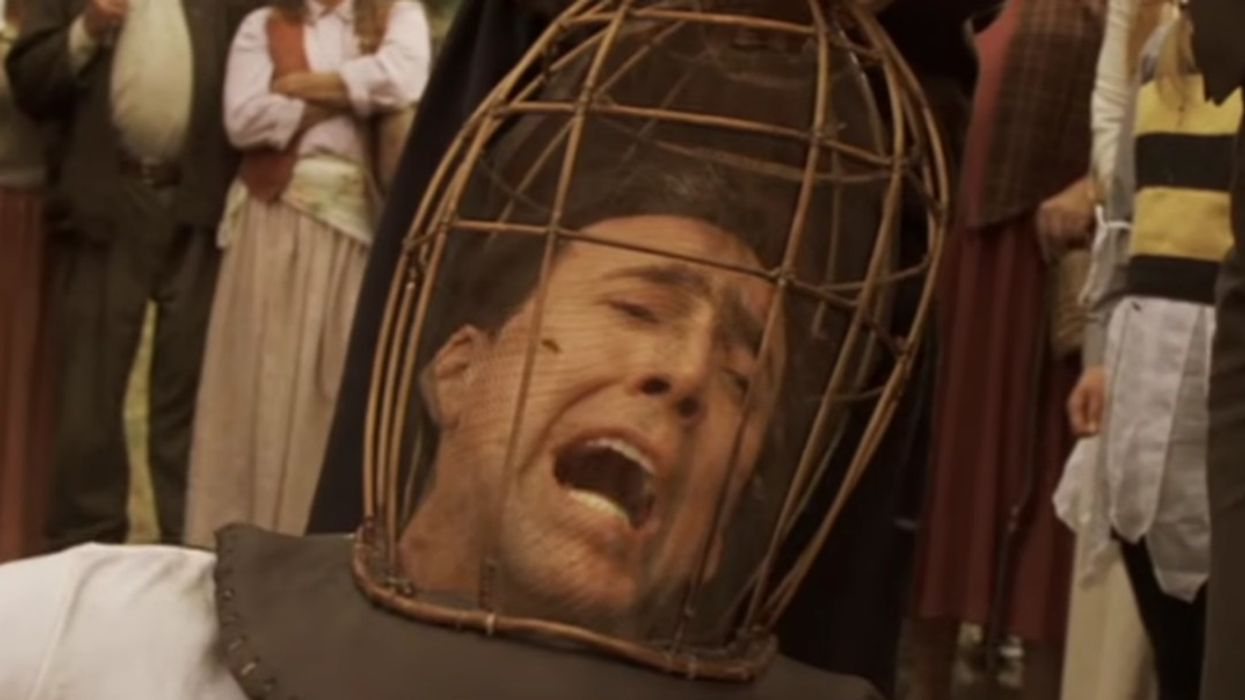Nic Cage Calls His 'Wicker Man' Work an 'Intentional Comedy'
Turns out, we were supposed to be laughing as Nic Cage screamed, "Not the bees!"

Nicolas Cage is one of those actors who seems to understand the assignment every time. The guy famous for having to do direct-to-DVD movies to bail himself out of debt succeeded. We walked away with some really weird movies. But even Cage's mainstream efforts were always a little bonkers.
In the early 2000s, he was cast in a remake of The Wicker Man, a story of a man who goes to investigate the disappearance of a young girl. He heads to an eerie town where he pulls back the strange layers of the people living there, learning there was more than meets the eye.
The horror movie The Wicker Man may not seem like a laugh riot, but when Cage starred in the remake, that's exactly what he had in mind.
While talking to IndieWire recently, Cage went in-depth on what he was going for in the movie.
"I know people had fun with that even if they thought the comedy was not intentional," Cage said. "I’m going on record right now. That is not a fact. Neil [LaBute] and I both knew how funny it was. It probably would've been more clear how funny it was if [producer] Avi Lerner let me have the handlebar mustache that I wanted to wear and be burned in the bear suit. That would’ve been so horrifying, but they didn’t go for that because all the comedy would’ve emerged from this horror. But Ari Aster did it brilliantly in Midsommar. That was terrifying, but they didn’t have the vision that Neil and I had for it."
Despite their best efforts, audiences were not in on the joke. The film only made $39 million, compared to a $40 million budget. The film went on to live in infamy and achieved cult status for its many meme-able moments. But it does feel like this messaging is retrofitting something that wasn't there.
Let me know your favorite bit from The Wicker Man in the comments.













